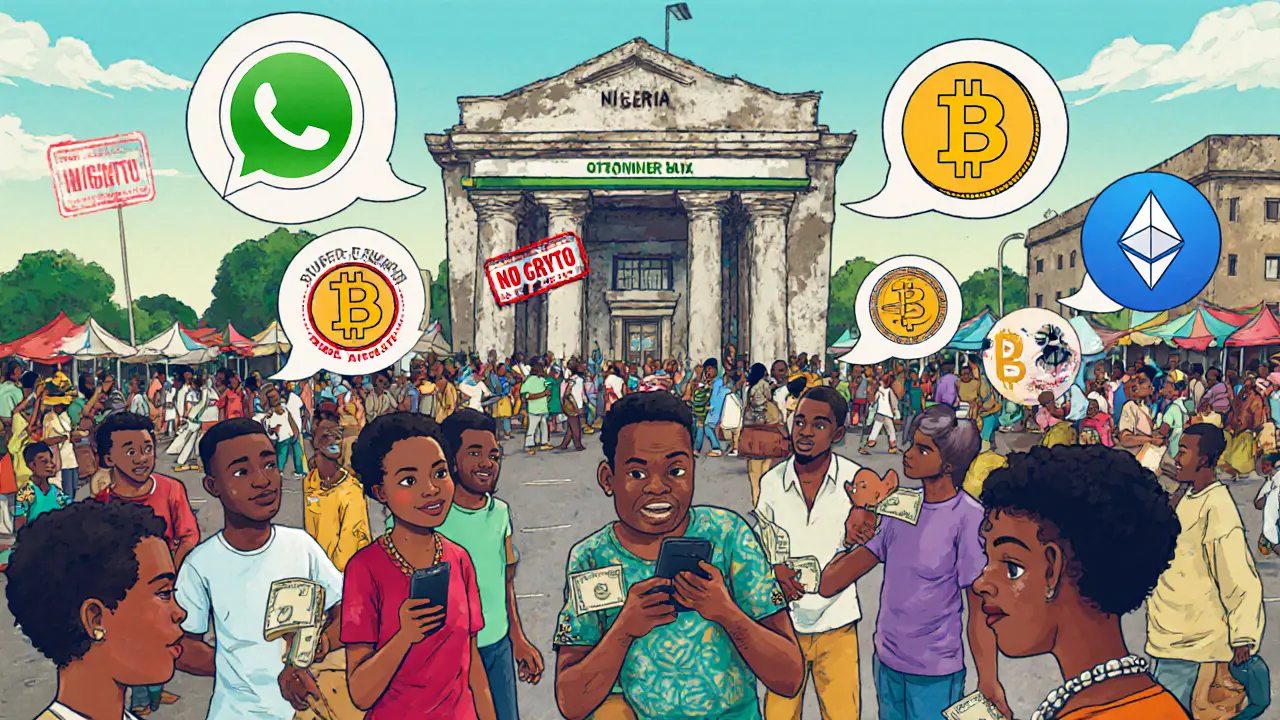Nigeria Crypto Ban: What Really Happened and How People Still Trade
When Nigeria’s central bank banned crypto exchanges in 2021, it wasn’t just a policy change—it was a shock to millions who used digital assets to send money, save, and earn. The Nigeria crypto ban, a 2021 directive from the Central Bank of Nigeria that forced banks to cut off services to crypto businesses. Also known as crypto exchange restrictions in Nigeria, it aimed to stop what officials called "unregulated financial activity." But the ban didn’t kill crypto—it pushed it deeper underground. People didn’t stop trading. They just stopped using banks.
The real story isn’t about the ban. It’s about what came after. Nigerians turned to P2P crypto, peer-to-peer platforms where buyers and sellers trade directly without intermediaries. Also known as crypto over-the-counter trading, it became the backbone of Nigeria’s digital economy. Platforms like Paxful, LocalBitcoins, and even WhatsApp groups exploded. Traders used mobile money, bank transfers, and cash meetups to swap Bitcoin for naira. Even after the ban, Nigeria remained one of the top countries in the world for crypto adoption—according to Chainalysis, it ranked in the top 5 for P2P volume in 2023. Why? Because for many, crypto isn’t a gamble. It’s a lifeline.
Meanwhile, Binance Nigeria, once the largest crypto platform in the country, shut down its local fiat gateway but kept its global trading platform active. Also known as Binance P2P, it adapted by letting users trade directly with each other using local payment methods. The platform didn’t vanish—it changed shape. People still used it, just differently. And while the government cracked down on exchanges, it couldn’t stop individuals from holding wallets, using stablecoins like USDT, or sending money abroad. Stablecoins became the new naira—stable, fast, and borderless.
The Nigeria crypto ban didn’t make crypto illegal. It made it harder to access through banks. But people found ways. They used proxy services, VPNs, and local networks to keep trading. They learned to verify sellers, avoid scams, and use cash deposits safely. This isn’t a story of failure—it’s a story of adaptation. And it’s happening right now, in real time, across Lagos, Abuja, and Port Harcourt.
What you’ll find below are real, grounded posts that show how people in Nigeria—and other countries under similar restrictions—keep crypto alive. From hidden P2P tactics to how stablecoins became the silent currency of survival, these aren’t theoretical guides. They’re survival manuals written by people who refused to stop.
How Nigeria's Underground Crypto Economy Thrived During the Ban
Despite a 2021 banking ban, Nigeria’s underground crypto economy surged, with millions using P2P platforms to trade Bitcoin and stablecoins. Learn how people bypassed restrictions-and why the ban backfired.
read more

